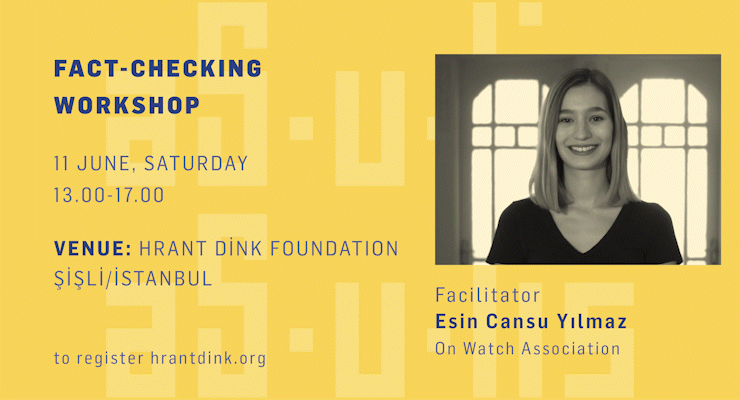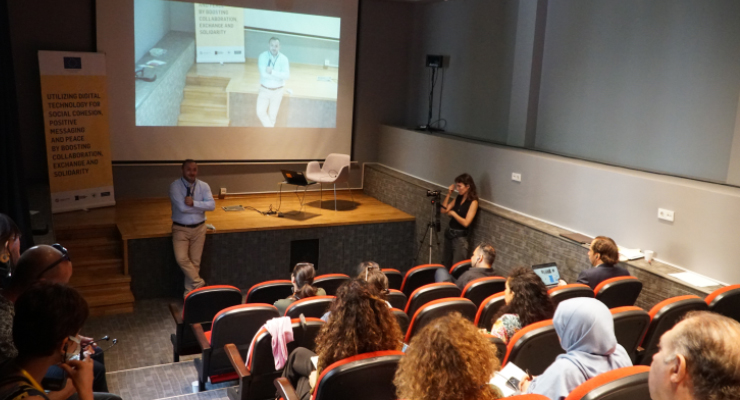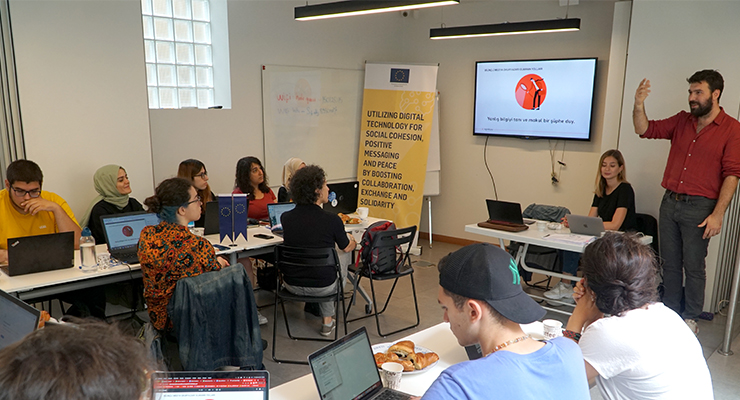Within the scope of the project titled “Utilizing Digital Technology for Social Cohesion, Positive Messaging and Peace by Boosting Collaboration, Exchange and Solidarity”, the online workshop series on experience sharing and capacity building organized under the title of “Countering Hate Speech and Creating Inclusive Discourse in the MENA Region Capacity Building” in cooperation with International Coalition of Sites of Conscience Europe and Hrant Dink Foundation was held in September, October, November, and December. 28 youth activists from 10 different countries in the Middle East and North Africa Region (MENA) participated in this workshop series.
In the first of the experience sharing workshops that started on 22th September 2022, the participants met with each other and made presentations about the dynamics of hate speech in the MENA region. Then, the definition of hate speech and discriminatory discourse were introduced. The forms of hate speech and the methodology developed by Hrant Dink Foundation within the scope of combating hate speech conveyed to the participants. After the question and answer section, the first session of the workshop was completed.
The second session of experience sharing workshops was held on 13th October 2022. In the presentation delivered by the Hrant Dink Foundation, definitions and concepts of prejudice, stereotype, and discrimination were conveyed to the participants. Following the definitions of hate speech and hate crime, the relationship between these two terms was explained with examples. The relationship between hate speech and freedom of expression was also discussed. Then, participants detected hate speech and discriminatory discourse through various examples given in group studies. After the group presentations, Fatna El Bouih from the Human Rights Center for Memory and Archives made a presentation on examples of the exclusionary and discriminatory consequences of hate speech, how hate speech is produced in historical narratives, and what the International Coalition of Sites of Conscience has done to combat it. After Bouih’s presentation, the participants were asked to find examples from their home countries to present in the next session.
The third session of the experience sharing workshops was held on 3rd November 2022. The participants made presentations about the examples of hate speech and discriminatory discourse in print and/or social media in their home countries. Following the participants’ presentations, Elif Gül Şahin from the Hrant Dink Foundation made her presentation titled “Toward a New Discourse” on how to produce an inclusive discourse to combat hate speech. With the information they received from the presentation, the participants created a campaign draft to build inclusive discourse in the group studies. After the question and answer section, the third session was closed.
The fourth session of the experience sharing workshops was held on 17th November. Workshop was started with the guest speakers’ presentations about good practices of campaigns, alternative media platforms, and fact-checking. Darshatha Gamage and Farah Firthous from Hashtag Generation and Devon Gulbrandsen from Global Initiative for Justice, Truth and Reconciliation shared their experiences with the participants in their speeches. Then the participants talked about the good practices from their regions. During the brainstorming activity, it was discussed how young people could be engaged in the studies and how these studies could be disseminated. After the question and answer section, the fourth session was completed.
The last session of the experience sharing workshops was held on 1st December 2022. Presentations were made by the participants about the campaigns they developed within the scope of combating hate speech in their countries. The modules they developed related to the methodology they learned during the workshop series, inclusive discourse, creation of the campaign, and its sustainability were presented. After the question and answer section, the last session was closed with the evaluation of the workshop series.

This project is financed by the European Union.





